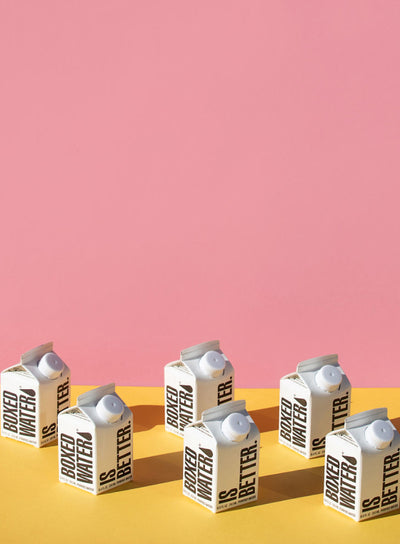We’ve shared the negative effects of plastic on our oceans and beaches, but don’t forget there are people taking positive action for our planet. We chatted with Richard Arterbury, the President and Founder of Ocean Blue Project. Their mission is to protect and conserve the world’s oceans, and they accomplish this in many different ways, from beach and river clean-ups to youth education programs. We sat down with Richard to learn more about the vital work his organization is doing and how we can all get involved in saving our oceans.
Tell us more about Ocean Blue Project and the work you do.
Ocean Blue Project was really formed from a beach clean-up that I organized with my son. After that first one, people kept emailing me to organize more clean-ups, and it just never ended. We decided to form a nonprofit to expand our impact. For example, we also clean up urban environments and restore wildlife habitats.
Wow, that’s a lot! How do all those projects fit within your overall mission?
Our primary goal is to clean our ocean of debris. We organize a lot of beach clean-ups, as a lot of plastic floats in from the ocean. On a larger scale, we also remove litter from urban spaces (cities) and rivers, to keep it from getting to the ocean – we’re cleaning up cities where pollution starts.
Our goal this year is to remove 50,000 pounds of waste from our oceans, and we’re looking at different ways and different machines to help us reach this goal.
What happens to the plastic once you collect it?
Last year, we worked with P&G to turn the plastic waste into recycled shampoo bottles. This year we’re working with a few organizations on the West Coast – we have big plans we can’t talk about yet, but we’ll find a use for it all.
You’re upcycling the plastic waste; we’re big fans of that at Boxed Water. In fact, many of our paper cartons are upcycled into building materials. We know you also work with trees – and that’s something we’re passionate about, too.
Yes! We’re helping out with planting trees, too. One of our focuses is planting trees by rivers and in urban areas to create a tree canopy. Tree canopies help lower water temperatures and restore natural habitats – and, speaking of, we’re also working to restore natural habitats on beaches. We plan to start planting native grasses in 2019 to help maintain sand dunes that provide a natural habitat for native bird species, like the endangered Snowy Plover.
In addition to removing plastic from the oceans, you also have a ‘Going Strawless’ campaign this summer to remove plastic straws altogether. We love this message!
One thing we’ve noticed is that going strawless isn’t actually hard for people to do. Most people don’t need a straw anyway. In instances where you want a straw, we suggest using paper straws instead. It’s an easy way to introduce paper over plastic, like introducing Boxed Water over plastic water bottles.
In addition to all the work you do, I know you’re also working with schools with your Blue Schools Program?
Blue Schools Program helps educate youth on the impact of stewardship and sustainability through individually tailored programs that address the needs of each school in every unique watershed. It’s different for different ages – for example, in elementary school, students learn how recycling can save fish. In high school, the students go on outdoor field trips to test the water in streams and plant trees. We also have interns at the college level that help educate the younger students.
Lastly, what’s something actionable people can do today to help our oceans?
The biggest thing they can do is to reduce single-use plastic. You can also create local beach clean-ups. We, at Ocean Blue Project, can help you get permits and organize a clean-up for groups. Every little bit helps. People don’t realize that plastic never goes away. It breaks down into smaller pieces, but it never goes away – and it ends up in our food, like fish. Eliminating plastic from our waste stream is key to it all.
Want to help make a difference? Find a beach clean up near you.


